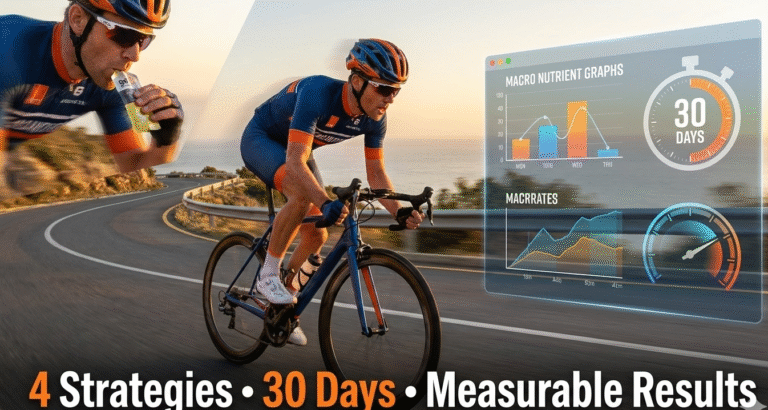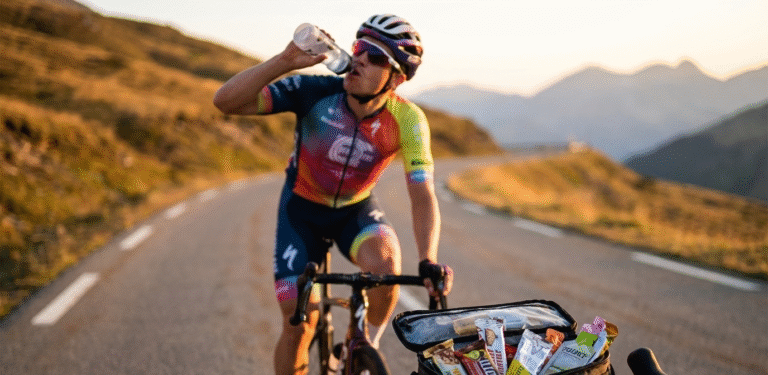The Best Fluffy Pancakes recipe you will fall in love with. Full of tips and tricks to help you make the best pancakes.
Vegan Cycling Nutrition Guide
How to meet all macro and micronutrient needs on a plant-based diet.
More cyclists are discovering that vegan cycling nutrition can fuel incredible performance without compromising health or ethics. Plant-based cycling athletes like Dotsie Bausch and Alex Honnold prove that vegan diets deliver serious power. The key lies in strategic meal planning and understanding which plant foods optimize cycling performance.
Vegan cycling benefits include:
- Faster recovery – anti-inflammatory plant compounds reduce muscle soreness
- Better endurance – complex carbs provide sustained cycling energy
- Improved digestion – fiber-rich foods support gut health during training
- Environmental impact – sustainable nutrition choices for conscious cyclists
This comprehensive vegan cycling guide covers everything from pre-ride fueling to post-workout recovery using only plant-based ingredients. For more, Check our Cycling Nutrition Guide
Fueling with Plant-Based Carbohydrates for Cycling
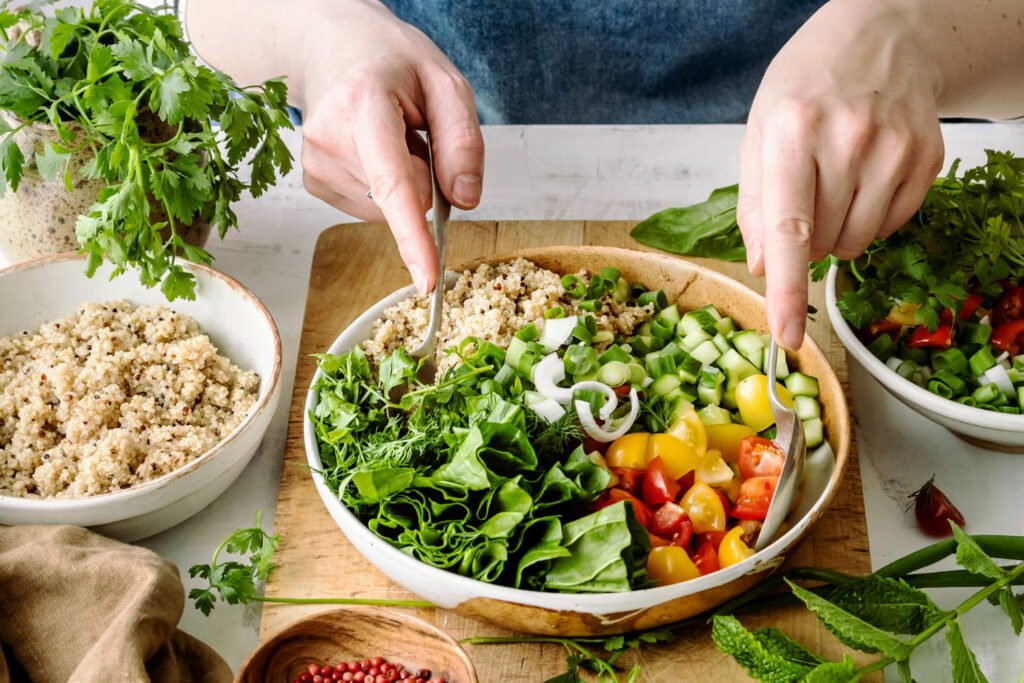
Vegan cycling carbs should form the foundation of every cyclist’s meal plan for optimal energy storage. Whole grains like oats, quinoa, and brown rice provide sustained glucose release during long rides. Sweet potatoes and regular potatoes offer quick-digesting starches perfect for pre-ride meals.
Best plant-based carb sources for cycling:
- Morning rides – oatmeal with banana and berries for immediate energy
- Pre-workout – whole grain pasta or rice bowls 2-3 hours before cycling
- During rides – dates, dried fruit, or homemade energy balls
- Recovery – quinoa salads or grain bowls within 30 minutes post-ride
Time these cycling nutrition sources strategically to maximize glycogen storage and maintain steady blood sugar throughout your rides.
Meeting Protein Needs with Vegan Cycling Recipes
Plant-based protein for cyclists requires combining different sources to ensure complete amino acid profiles for muscle repair. Legumes paired with grains create complete proteins that rival any animal source. Tofu, tempeh, and seitan offer concentrated protein perfect for serious cycling training.
Daily protein targets for vegan cyclists:
- Endurance training: 1.4-1.8g protein per kg bodyweight minimum
- Recovery meals: 20-25g protein within 30 minutes post-ride
- Protein combinations: beans + rice, hummus + whole grain pita
- Quick options: plant protein smoothies or overnight oats with nuts
Vegan cycling meal prep becomes easier when you batch-cook legumes and grains for quick protein-rich meals throughout the week.
Essential Fats for Vegan Cycling Performance
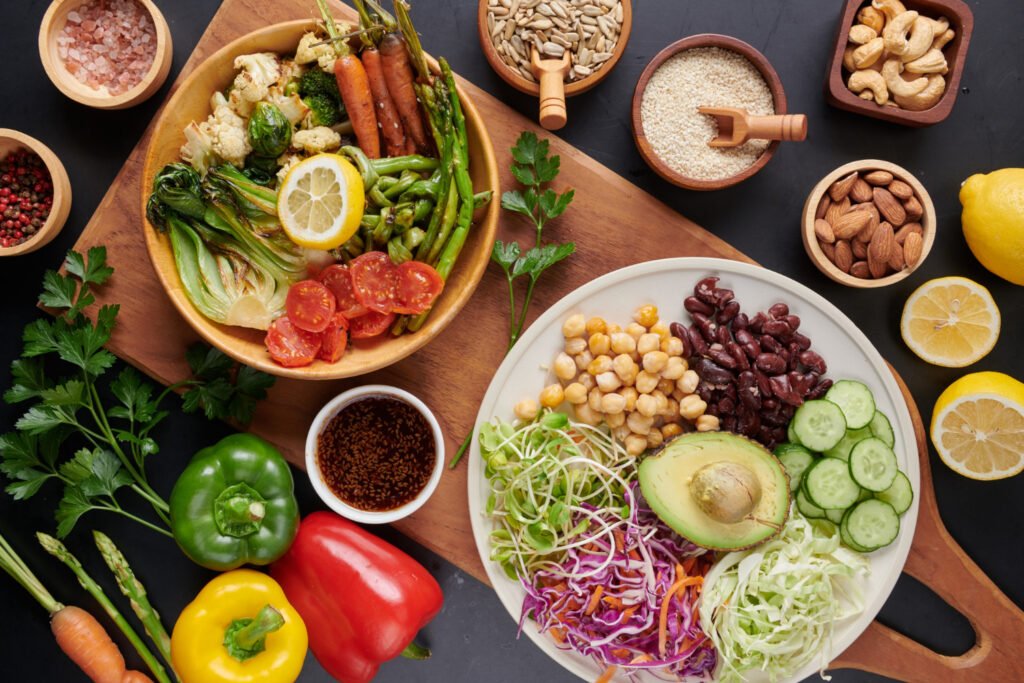
Healthy fats for cyclists on vegan diets support hormone production, reduce inflammation, and provide concentrated energy for ultra-distance rides. Omega-3 fatty acids from plant sources help with recovery and joint health during high-volume training periods.
Top vegan fat sources for cycling:
- Omega-3s: chia seeds, ground flaxseed, walnuts, algae oil supplements
- Energy-dense: avocados, tahini, almond butter for calorie-dense cycling fuel
- Cooking fats: olive oil and coconut oil for meal preparation
- Portable options: mixed nuts and seeds for mid-ride energy
Include these vegan cycling fats in every meal to support endurance performance and maintain stable energy levels during training.
Critical Micronutrients for Vegan Cyclists
Vegan cycling supplements become necessary for nutrients that plant foods don’t provide adequately. Smart supplementation prevents deficiencies that could sabotage your cycling performance and overall health. Regular blood testing helps identify individual needs.
Essential supplements for vegan cyclists:
- Vitamin B12: 250-500mcg daily or weekly high-dose supplement
- Iron: pair plant sources with vitamin C foods for better absorption
- Calcium: fortified plant milks, tahini, leafy greens, or supplements
- Vitamin D3: vegan D3 supplements, especially for indoor cyclists
- Zinc: pumpkin seeds, cashews, or chelated zinc supplements
Work with a sports nutritionist familiar with vegan athletic nutrition to optimize your supplementation strategy for cycling performance.
Hydration and Recovery for Plant-Based Cyclists
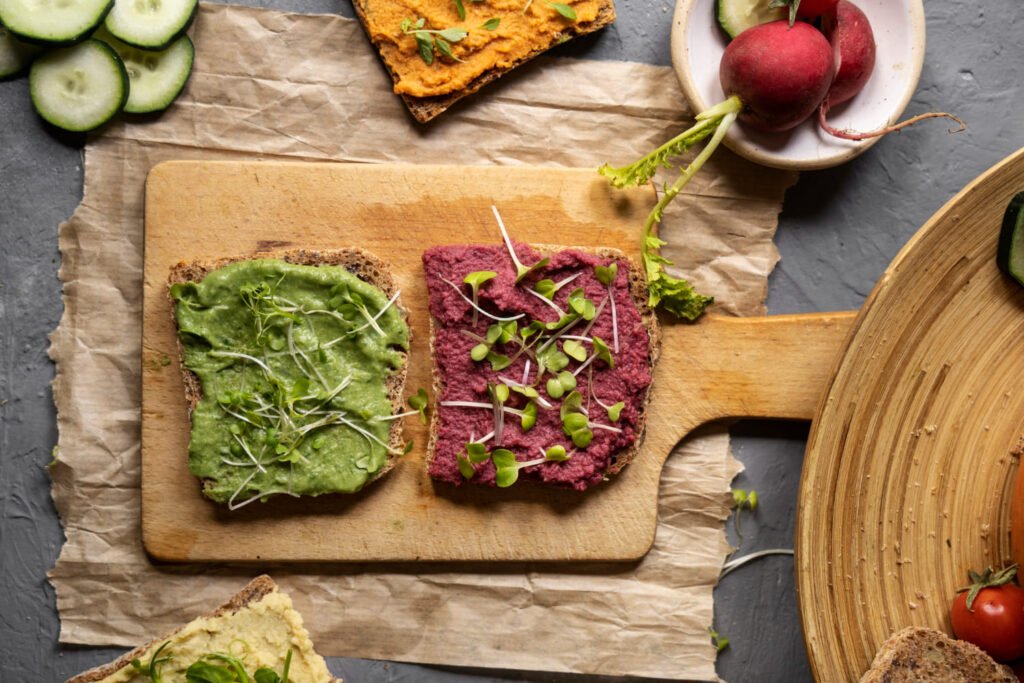
Vegan cycling recovery relies on strategic combinations of plant carbs and proteins to maximize muscle repair and glycogen replenishment. Natural hydration options often work better than artificial sports drinks for sustained cycling efforts.
Plant-based recovery strategies:
- Immediate: banana with almond butter or recovery smoothie with plant protein
- Hydration: coconut water, watermelon juice, or homemade electrolyte drinks
- Anti-inflammatory: tart cherry juice or turmeric smoothies for muscle recovery
- Overnight: chia pudding or overnight oats for next-day glycogen storage
These vegan cycling recovery methods support faster healing and better adaptation to training stress naturally.
Summary
Vegan cycling nutrition provides everything needed for peak performance when planned thoughtfully around whole plant foods. Strategic carb timing, adequate protein combining, healthy fat inclusion, and smart supplementation create the foundation for successful plant-based cycling. Focus on nutrient-dense whole foods, stay consistent with meal timing, and monitor your energy levels during training. With proper planning, vegan cyclists can achieve remarkable endurance and recovery while supporting their values through sustainable nutrition choices.



